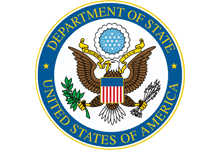| Source: Date: Updated: |
US State Department
Tuesday, June 9, 2015 Tuesday, June 9, 2015 |
 May 2015 (State.gov) – The Bahamas maintains a relatively stable environment for investment and demonstrates a long tradition of parliamentary democracy, respect for the rule of law and a well-developed legal system, and security of life and personal property. It aggressively promotes its liberal tax environment and freedom from many types of taxes, including capital gains, inheritance, and corporate or personal income taxes. U.S. companies find that The Bahamas’ proximity to the United States, common English language, and the exposure to U.S. media and culture contribute to Bahamian consumers having general familiarity and positive attitudes towards U.S. products. The Bahamas conducts approximately 80% of its international trade with the United States.
May 2015 (State.gov) – The Bahamas maintains a relatively stable environment for investment and demonstrates a long tradition of parliamentary democracy, respect for the rule of law and a well-developed legal system, and security of life and personal property. It aggressively promotes its liberal tax environment and freedom from many types of taxes, including capital gains, inheritance, and corporate or personal income taxes. U.S. companies find that The Bahamas’ proximity to the United States, common English language, and the exposure to U.S. media and culture contribute to Bahamian consumers having general familiarity and positive attitudes towards U.S. products. The Bahamas conducts approximately 80% of its international trade with the United States.
The Bahamian economy remains heavily dependent on tourism and financial services, although the government has made efforts to encourage diversification, particularly in agriculture. The Bahamas relies primarily on imports from the United States to satisfy its food needs for local and tourist consumption.
On January 1, 2015, the Government of the Commonwealth of The Bahamas (GCOB) introduced a 7.5% Value Added Tax (VAT) levied on most goods and services, a measure designed to strengthen the fiscal balance sheet. Implementation of the new tax has gone relatively smoothly and the government continues to refine its VAT rules and procedures.
The Bahamas continues to attract significant foreign direct investment (FDI) from various parts of the world. However, there remain significant challenges to investing in the country, including the cost and reliability of electricity, high unemployment combined with a lack of skilled labor, and cumbersome administrative requirements. U.S. and Bahamian companies alike report that the resolution of business disputes often takes years, and the approval process for foreign investments is cumbersome and often time-consuming. The Bahamian government asserts, however, that the majority of foreign investment applications are processed quickly and without significant issues. Some U.S. and Bahamian companies also complain that the tender process for public contracts is not consistent or transparent.
On September 2, 2014, Moody’s Investor Service (moodys.com) downgraded the Bahamas’ issuer and senior unsecured ratings to Baa2 from Baa1 and changed the outlook from stable to negative, citing continued deterioration of the government’s balance sheet and subdued economic growth. In a credit opinion issued on March 9, 2015, Moody’s predicted that the government would overshoot its fiscal deficit projections, but maintained the rating and outlook. Standard and Poor’s (standardandpoors.com) affirmed a BBB/A-2 rating with a negative outlook on November 6, 2014, noting that The Bahamas’ credit profile remains under pressure amid a stagnant economy and weak fiscal performance, while acknowledging that VAT revenues would be a key driver in future ratings.
The Bahamian government continues to assert that long awaited-benefits from foreign investment-led activities are imminent, particularly in the tourism and construction sectors. The USD 3.5 billion Baha Mar mega-resort in Nassau is expected to open in 2015. The International Monetary Fund (IMF) in its March 2015 Article IV consultations predicted 2.8 percent growth for the country in 2016, supported in part by a strenthened economy in the United States. (imf.org).
The Bahamas remains the only country in the Western Hemisphere that has not acceded to the World Trade Organization (WTO). The government has committed to accelerating its efforts to acquire full membership, which will require it to remove barriers to international trade and take further steps to facilitate foreign investment and bolster intellectual property rights. These goals are commendable and vital to economic growth, but the government likely will face continued internal and external challenges to their successful implementation.
This is the Executive Summary from the US Department of State’s 2015 Investment Climate Statement. For the complete statement and tables, download or view the PDF here.
Download/View the PDF >










